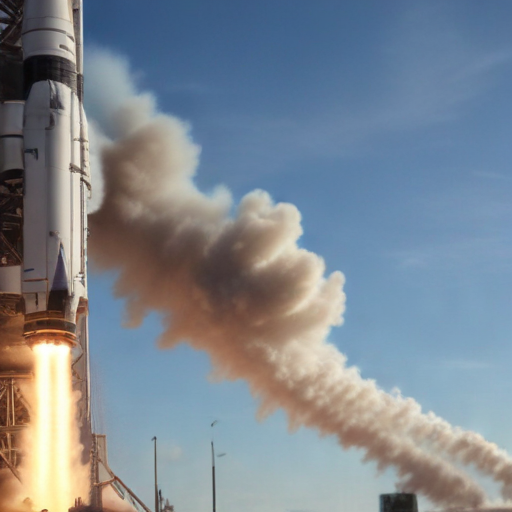Florida’s Space Coast celebrated an exceptional year in 2024, achieving a remarkable total of 93 launches from Cape Canaveral Space Force Station and NASA’s Kennedy Space Center. This figure marks a significant increase from the 74 launches recorded in the previous year.
Brigadier General Kristin Panzenhagen, who commands the Eastern Range and Space Delta 45, attributed this surge to advancements made by Space Launch Delta 45 in conjunction with initiatives from the private sector. Panzenhagen noted that “leveraging automation, modernizing infrastructure, and streamlining processes” were key factors in reaching these unprecedented numbers.
Of the 93 launches, SpaceX dominated the landscape, conducting 88 missions, while United Launch Alliance (ULA) was responsible for five. SpaceX’s launch frequency reached an astonishing pace, accounting for 134 commercial and government missions throughout the year. This included 62 launches from Cape Canaveral Space Force Station, 26 from Kennedy Space Center, and 46 from its facility at Vandenberg Space Force Base in California. Additionally, SpaceX conducted four test flights of its next-generation Starship vehicle.
To accommodate this surge in launch activity, Space Launch Delta 45 introduced new measures to minimize turnaround times. The development of automated flight safety technologies by SpaceX also played a crucial role in enhancing efficiency, significantly reducing the personnel and time needed for pre-launch preparations.
Furthering collaboration, the Space Force’s Space Systems Command launched the “One Falcon” initiative to streamline management of SpaceX’s rapid launch schedule. This program unifies personnel between the Eastern and Western Ranges, optimizing resource deployment and enabling teams to support launches regardless of the coast.
The ramifications of these commercial launch successes extend to national security. Although just four of the 93 launches were directly related to national security, Panzenhagen indicated that the high volume of commercial activity fortifies military operations through improved infrastructure and rapid response capabilities. She illustrated this point with the recent “Rapid Response Trailblazer” RRT-1 mission, where SpaceX efficiently launched a GPS satellite in a compressed timeline.
Looking forward, competition in the national security launch sector is anticipated to grow. Blue Origin, the space company founded by Amazon’s Jeff Bezos, is expected to debut its New Glenn rocket in early 2025 after becoming a national security launch provider in 2024. Panzenhagen expressed optimism, stating that introducing new companies and rockets enhances resilience within the industry.
Furthermore, ULA is awaiting certification for its Vulcan Centaur rocket, which is designed to succeed the Atlas 5 and Delta 4 vehicles. Despite encountering an anomaly during one of its flights in 2024, Panzenhagen highlighted the cooperative relationship with ULA as they navigate the engineering process to ensure a successful launch.
This upward trajectory for Florida’s Space Coast not only signifies advancements in space exploration but also underscores the potential for innovation to enhance national security efforts, reflecting a bright future for the region and the space industry as a whole.
In summary, Florida’s space launch endeavors in 2024 illustrate a significant milestone in both commercial space activities and national security implications, driven by innovation and collaboration among industry and military sectors.
